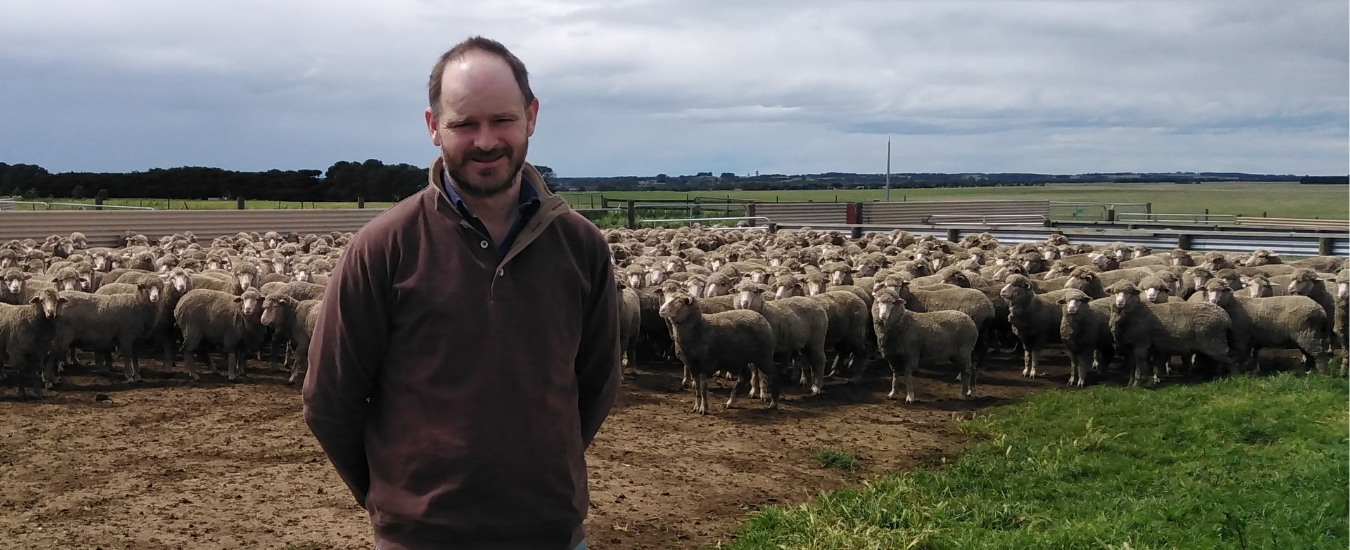The On-Farm Emissions Action Plan Pilot is supporting farmers to improve their productivity and gain important skills and knowledge by helping them to estimate, manage and reduce their on-farm emissions.
Nick Blandford runs a self-replacing Merino flock of approximately 2,800-3,000 breeding ewes, producing wool, lamb and mutton for the domestic and international markets, on 1,400 hectares in Meerlieu, East Gippsland.
With a background in agricultural science and research, Nick has had a long interest in climate change and emissions reduction. He signed up for the pilot to learn more about the emissions intensity of their production system and to identify the main sources and sinks of greenhouse gases on farm.
“The most important thing for our business is to get as close as possible to achieving carbon neutrality. I hope to be able to achieve this and use what I learn to develop strategies to improve the resilience of our production system and evaluate the marketing opportunities available to us.”
Knowing where to start with emissions reduction is a challenge faced by many, however, Nick says the key thing for farmers is to understand what the sources and sinks of emissions are and to find cost-effective ways to measure and manage changes over time.
The one-on-one technical advice and support provided through the pilot will assist farmers to identify scope one, two and three emissions and through grant funding will provide an opportunity to implement an emissions reduction project.
“My advice for other farmers is that the sooner you understand the emissions intensity of your production system the better off you will be. From this point, you can evaluate your inventory to determine what resources you need to retain and what you can sell.”
Nick also encourages the agriculture sector to get involved with network and industry groups to share skills and knowledge.
“One of the best ways to learn is through peer-to-peer networks, hopefully I can provide insights from what I learn through the networks I am involved with including Young Farmers Network, the Young Farmers Online Bestwool/Bestlamb group and the East Gippsland Landcare Network.”
The On-Farm Emissions Action Plan Pilot will support up to 250 farm businesses across the state to measure their on-farm emissions profile and identify potential actions to manage and reduce emissions while maintaining productivity.
The pilot is being delivered as part of the Agriculture Sector Emissions Reduction Pledge to provide practical information, tools and services to support farmers to understand and reduce emissions.
Further information
A number of free, practical tools and resources have been developed and are available on the Agriculture Victoria website to help inform and educate the industry about weather and climate patterns, carbon emissions, and energy use on farms;
- The Soil Carbon Snapshot delivers the latest science around soil carbon and includes links to 70 research references and soil carbon reports relevant to Australian agriculture.
- Agriculture Victoria also delivers climate webinars on topics relevant to primary producers and others working in agriculture. Subscribe to be notified when new webinars become available.
- For farmers considering selling carbon credits from their trees or soils, a revised set of Frequently Asked Questions has been developed to help inform business decision-making.

